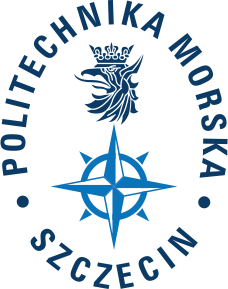Publikacje naukowe Dorota Jarząbek
Tytuł: Effect of sea temperature on crude oil spill condition – simulator Pisces II
Autor/Autorzy: Dorota Jarząbek, Kinga Drwięga
Miejsce publikacji: European Research Studies Journal, Issue 5 2021
Rok: 2021
Słowa kluczowe: Simulator Pisces II, sea temperature, crude oil, viscosity, oil spill
Abstrakt: The purpose of this study was to analyze influence of sea temperature on oil spill at constant air temperature.
The possibility of using computer simulation to predict the behavior of oil spills at sea enables both to make better use of the forces and resources at their disposal to control them. Therefore, an attempt was made to analyze effect of selected simulation parameters (related to hydro meteorological conditions) on the response of the oil spill depending on the type of spill (type of oil spilled) under the same simulated weather conditions.
Adres strony internetowej (link) do pełnego tekstu publikacji: pełny tekst
DOI: 10.35808/ersj/2821
Tytuł: Ecological aspect of vessel decommissioning market
Autor/Autorzy: Dorota Jarząbek, Kinga Drwięga
Miejsce publikacji: European Research Studies Journal
Rok: 2021
Słowa kluczowe: ecology, recycling, scrap yards, decommission market, South Asian shipyards
Abstrakt: The article shows the needs of vessel decommissioning market. Collected data used in the paper consist period of 2014-2019, before the COVID- 19 epidemy starts. To improve health, safety and life of workers as well as environmental protection related to the decommissioning process, which mainly take place in the South Asian shipyards, the concept of Design for Recycling DfR and Hong Kong Convention are brought up into the daylight. Implementing the DfR is to make the whole decommissioning process as simple and cost-effective as possible. The vessel design
stage, with selection of building materials and new technologies used, is the area where constant changes and updates are taking place. Making the Honk Kong Convention alive, will put the duty on the ship owners to dismantle their vessels in shipyards, which are authorized by the adequate Administration of State. Methodology/Approach: Data used for
analysis were implemented from UNCTAD. Final deductions has been shown in tables and figures. Findings: Ratification of HK Convention is essential to improve protection of the workers involved in decommissioning process and to protect environment. Practical Implications: Analysis presented in the article underline the need of changes in vessel dismantling market. Originality/Value: Collected data are the basement into the future analyses of the whole decommissioning
market area.
Adres strony internetowej (link) do pełnego tekstu publikacji: pełny tekst
DOI: 10.35808/ersj/2364
Tytuł: Analysis of the impact of weather conditions on the effectiveness of oil spill recovery operation in simulated conditions (PISCES II)
Autor/Autorzy: Dorota Jarząbek, Wiesław Juszkiewicz
Miejsce publikacji: ANNUAL OF NAVIGATION 24/201 pp. 315-326
Rok: 2017
Słowa kluczowe: oil spill simulation, oil pollution characteristics, hydrometeorological conditions, oil pollution behavior
Abstrakt: The ability to use computer simulation to predict the behavior of oil spills at sea enables better use of available personnel and resources to combat such spills. The use of oil collecting equipment properly selected to suit the conditions is essential for the operation to be effective. Therefore, an attempt is made to verify the influence of weather conditions on the efficiency of oil recovery.Three types of spilled crude oil were simulated. A relevant experiment was conducted on a PISCES II oil spill simulator.
Adres strony internetowej (link) do pełnego tekstu publikacji: pełny tekst
Tytuł: Analysis of the impact of selected hydrometeorological conditions on the accuracy of oil spill simulations on the PISCES II simulator
Autor/Autorzy: Dorota Jarząbek, Wiesław Juszkiewicz
Miejsce publikacji: Scientific Journals of the Maritime University of Szczecin, no. 46 / 2016 pp.
Rok: 2016
Słowa kluczowe: hydrometeorological conditions, oil spill simulation, oil pollution characteristic, oil pollution behawior
Abstrakt: Computer simulations used for predicting the behavior of oil spills at sea allow optimizing the deployment of oil spill response personnel and resources, and using the backtracking method to identify the polluter in cases where spills are sighted some time after they occurred. Predicting the direction and speed of oil slick spreading is of fundamental importance. An attempt was made to verify the influence of selected simulation parameters related to hydrometeorological conditions, on the behavior of the resulting oil pollution. Different responses were obtained under the same simulated weather conditions, depending on the type of spilled oil. The experiment was conducted on a PISCES II oil spill simulator.
Adres strony internetowej (link) do pełnego tekstu publikacji: pełny tekst
DOI: 10.17402/115


